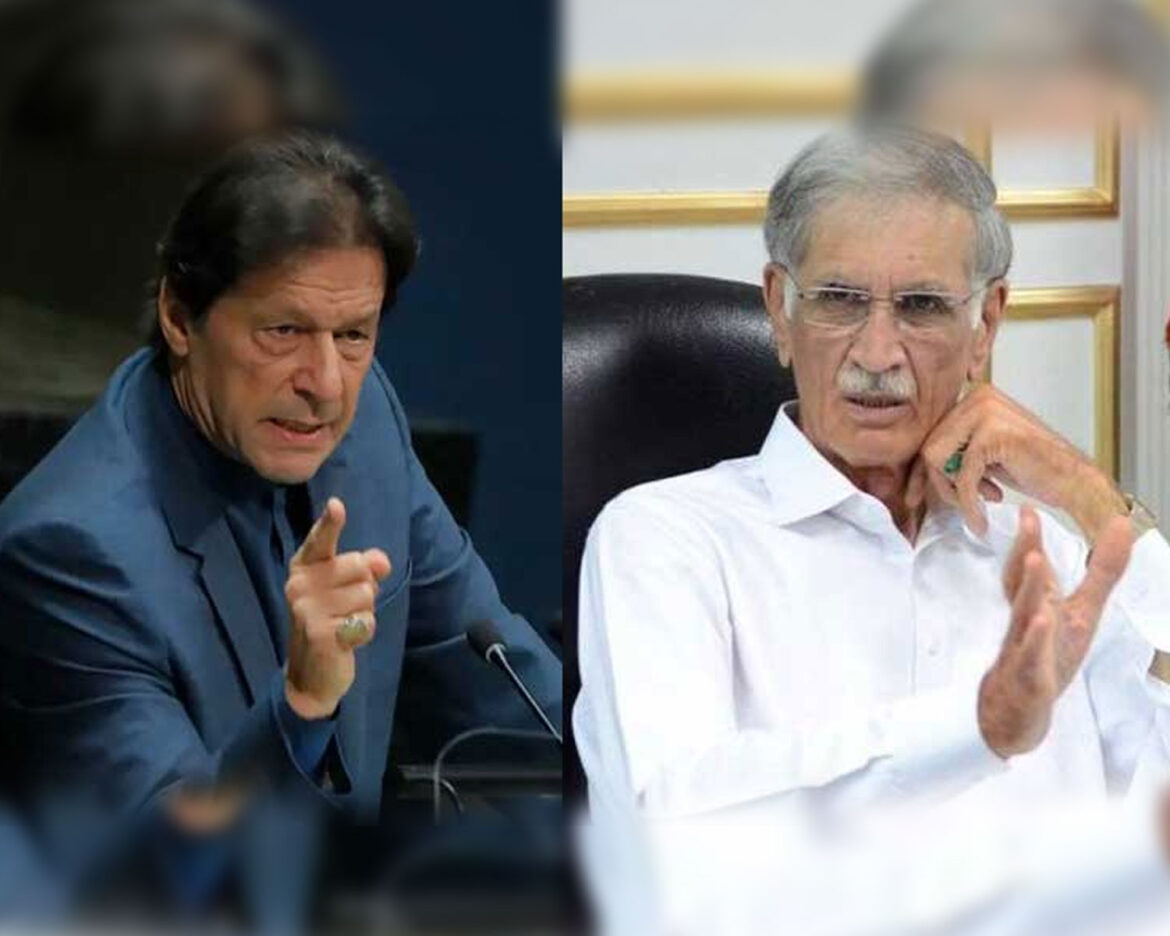Pervez Khattak, the chief of PTI-Parliamentarians (PTI-P), made startling allegations against former Prime Minister Imran Khan, claiming that Khan’s primary objective was to bring about a revolution against institutions during his time in power. Khattak, who founded PTI-P, criticized Khan’s leadership and handling of national challenges, asserting that Khan lacked a coherent strategy.
Khattak stated that Khan often encouraged deceptive practices, instructing party members to propagate falsehoods until they appeared as truths. This allegation sheds light on the internal dynamics of the Pakistan Tehreek-e-Insaf (PTI) party during Khan’s tenure as prime minister.
The PTI-P chief’s relationship with Imran Khan had deteriorated earlier this year, resulting in his expulsion from the party. In July, Khattak’s basic party membership was revoked after he allegedly incited members to leave the PTI. These recent allegations mark a continuation of his rift with the party.
Addressing the events of May 9, which remain unspecified, Khattak indicated that he did not approve of the course of action taken on that day, suggesting internal disagreements within the party. While he did not delve into the specifics, this cryptic reference hints at behind-the-scenes turmoil.
Surprisingly, Khattak extended appreciation to former army chief Qamar Javed Bajwa, whom Khan had accused of being involved in a conspiracy that led to his removal from office through a vote of no-confidence. Khattak revealed that Bajwa had been supportive of PTI-P during his time with the party, but eventually, even Bajwa reached a point where he felt unable to continue support.
Khattak further claimed that former spymaster Lieutenant-General (retd) Faiz Hameed, alongside Bajwa, had orchestrated an environment conducive to holding elections, but Imran Khan was reportedly opposed to the idea. Unfortunately, Khattak did not provide additional context for these statements.
Highlighting his contributions to the PTI’s electoral success, Khattak asserted that he had brought around 60% of electable candidates into the party. This statement underscores his role in building the PTI’s political influence.
Khattak went on to express concerns about the PTI’s future, suggesting that the party could potentially face a ban and be labeled a “criminal party.” He pointed to specific legal cases—Toshakhana, cipher, Al-Qadir Trust case, and the May 9 riots—as potential challenges that could impact Imran Khan’s leadership and the PTI’s standing.
These allegations made by Pervez Khattak not only expose internal dissension within the PTI but also raise questions about the party’s credibility and its approach towards governance and institutions. As these claims reverberate within Pakistani politics, they could have far-reaching consequences for both PTI and the broader political landscape.



